How to become deminer?
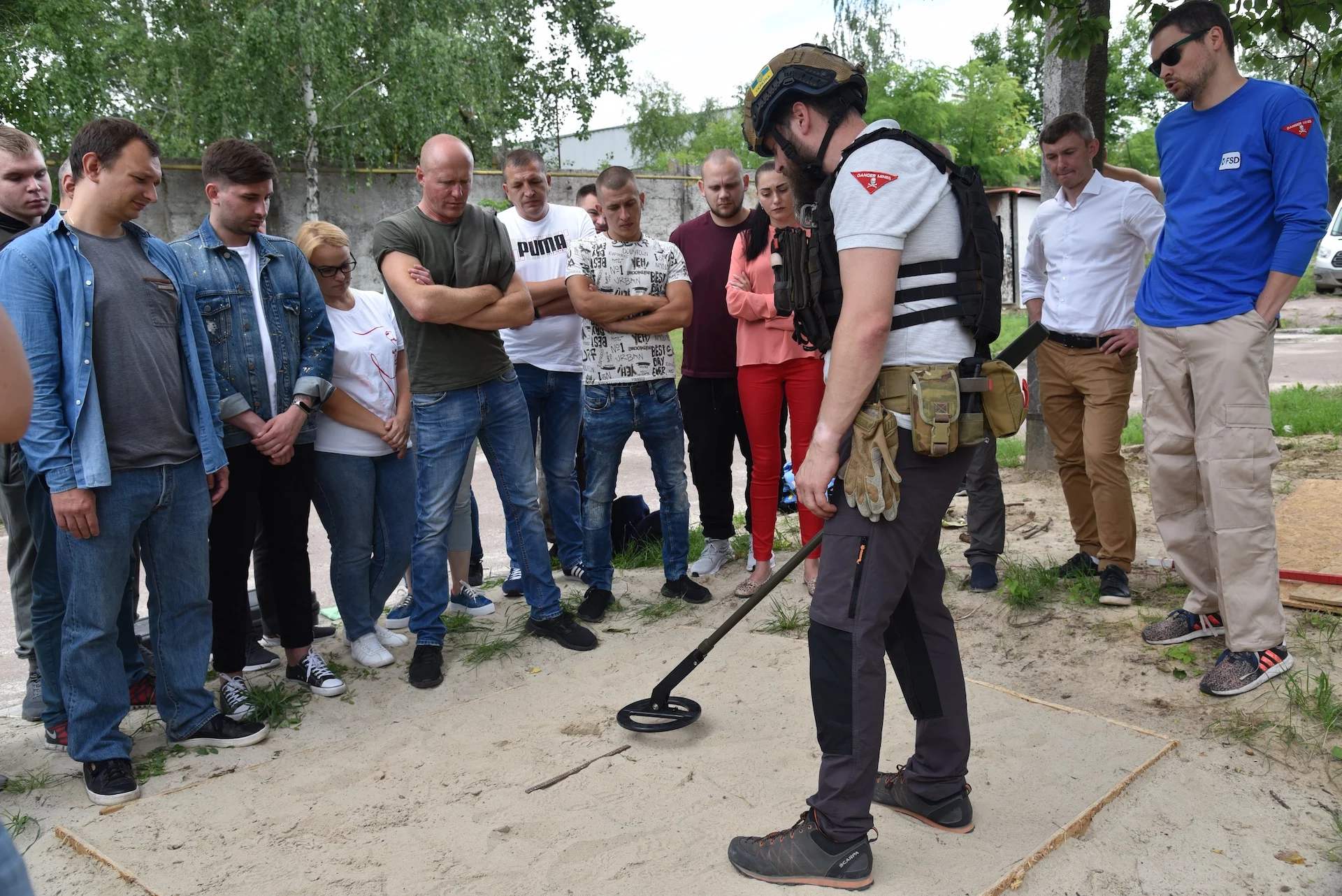
FSD’s deminers come from all walks of life: farmers, teachers, IT specialists and many others. Many have had their lives disrupted by conflict and wish to contribute to rebuilding their country. Sometimes, a family member already working with FSD inspires them to join in turn. Demining also offers real career prospects in areas where economic opportunities are limited.
In the field, the task of deminers is to carefully examine and sometimes excavate the ground to locate landmines and explosive remnants of war using metal detectors. These women and men make up the majority of FSD’s workforce.
Alongside them, technical experts bring experience and specialised skills. Qualified in explosive ordnance disposal, they are responsible for securing and destroying the devices identified by deminers, as well as coordinating and monitoring field operations. Some also act as trainers, ensuring local deminers are trained to the highest international standards.
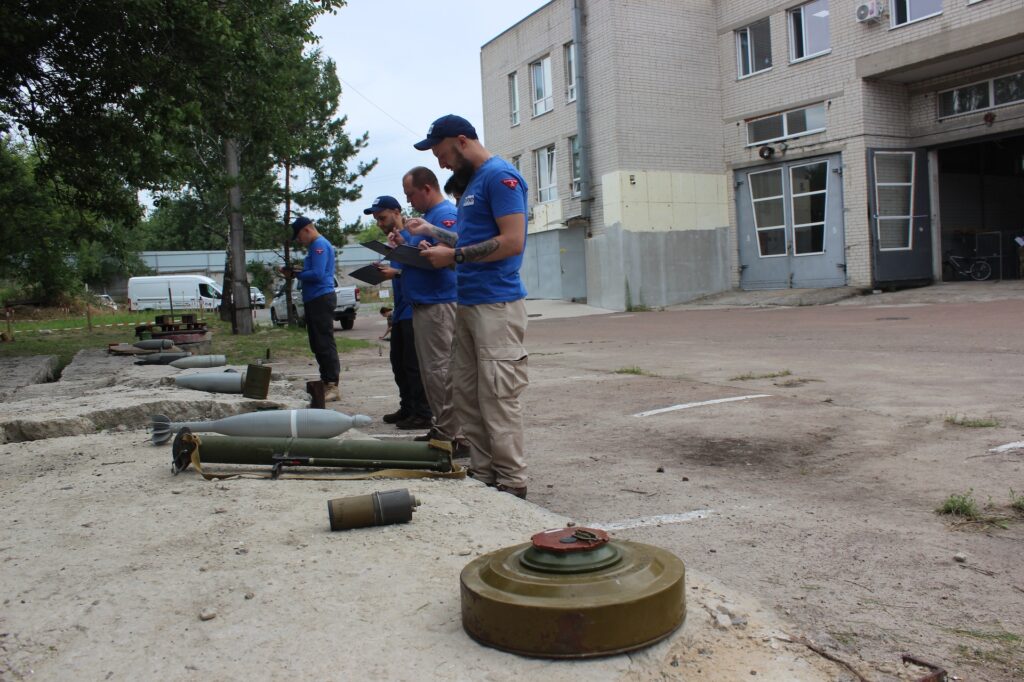
Training in two stages
No prior technical knowledge is required to become a deminer. It is enough to be able to read and write, and to be in good physical condition. Training begins with a theoretical module, covering search and excavation techniques, safety procedures and first aid. Trainee deminers also study the different types of explosive ordnance they may encounter in the field.
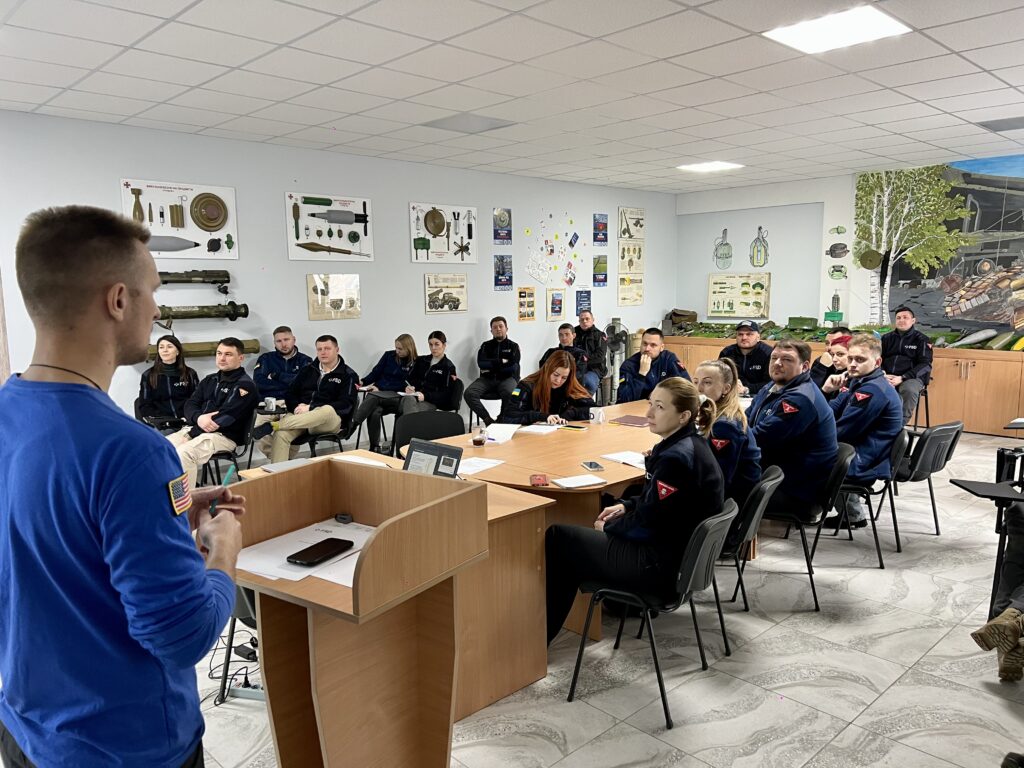
The following weeks are devoted to practical exercises: visual searches, metal detector use, vegetation cutting, excavation and emergency casualty evacuation drills. Each movement is repeated until it becomes second nature. Training sessions take place on specially prepared areas that replicate real conditions as closely as possible.
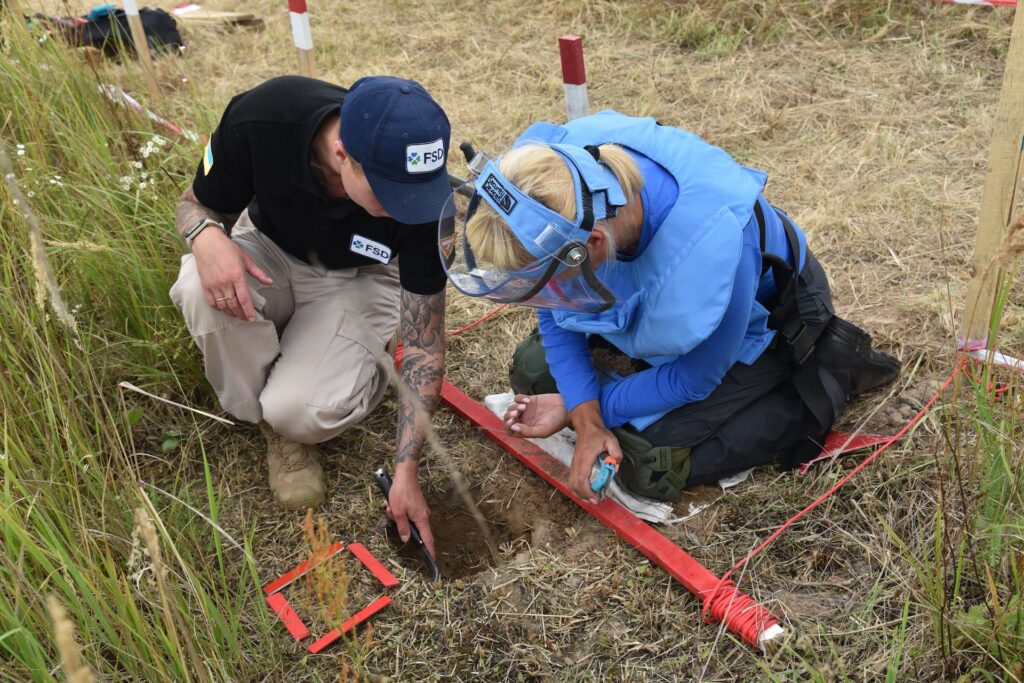
Continuous training for safer operations
Even after several years of experience, training remains a top priority. After each leave period, winter break or at regular intervals, deminers take part in refresher sessions. These exercises help them sharpen skills, integrate any new procedures and maintain high levels of vigilance.
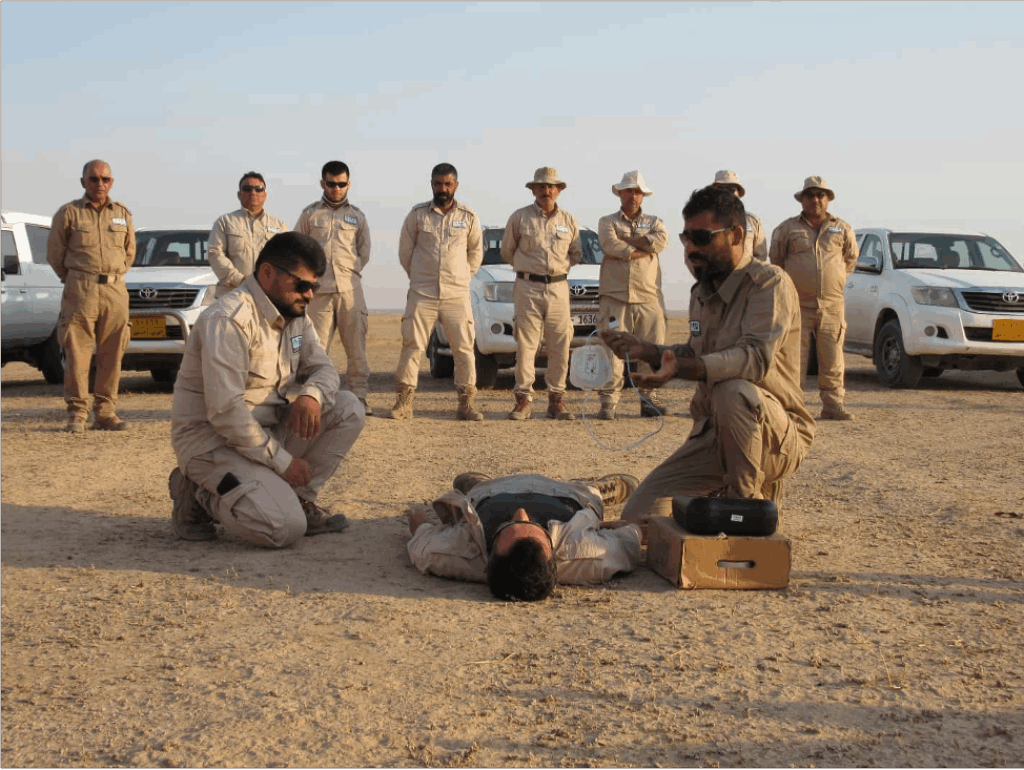
Demining is a demanding profession. It requires working in the heat, rain and dust, often far from home and family for weeks at a time. Each day involves significant physical effort and constant focus. Yet the moment when a cleared field is finally handed back to its community brings a unique sense of fulfilment. The smiles of the deminers say it all: satisfaction, joy and pride in having made the world a little safer.

QR Codes to Save Lives
In Kharkiv province, Ukraine, residents live every day with the invisible yet very real presence of explosive remnants of war. FSD…
Prevention and risk education
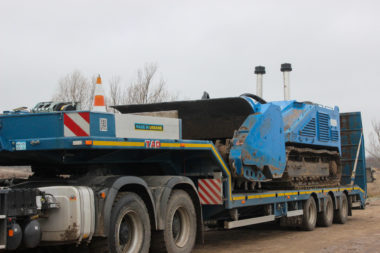
FSD strengthens Ukraine’s mechanical demining capacity with new SECO-funded project
FSD has launched a new project funded by the Swiss State Secretariat for Economic Affairs (SECO) to help the State…
Machines, drones and technology Humanitarian demining Non catégorisé
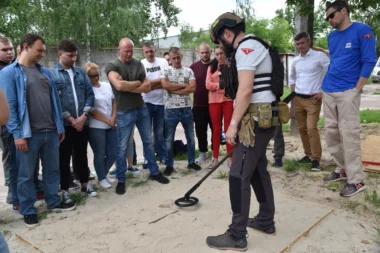
How to become deminer?
FSD’s deminers come from all walks of life: farmers, teachers, IT specialists and many others. Many have had their lives…
Humanitarian demining Iraq